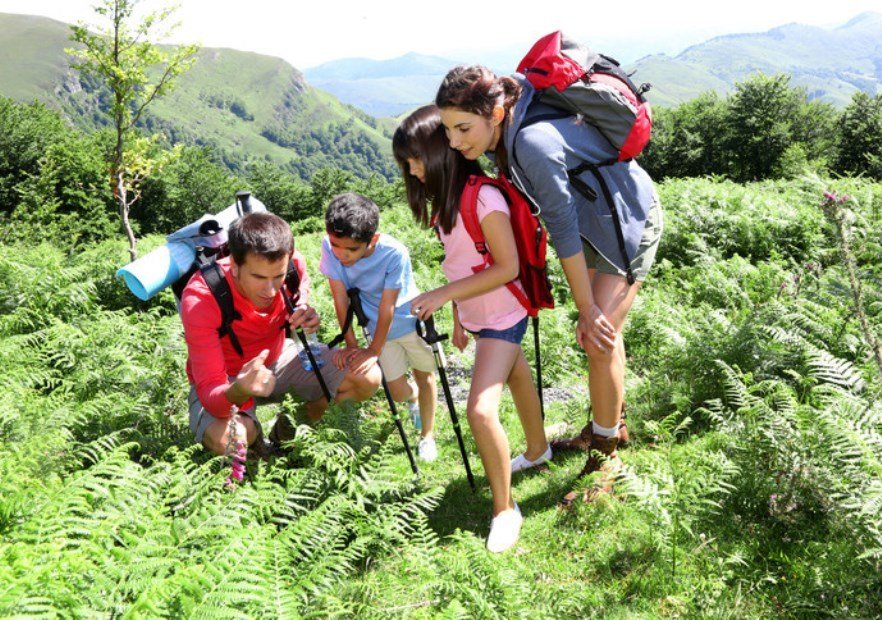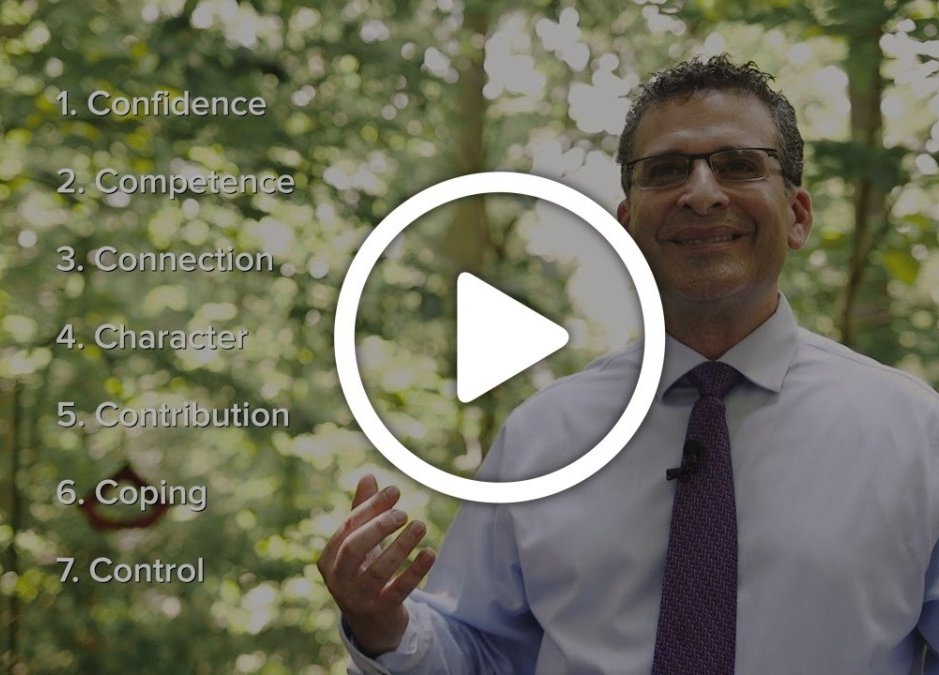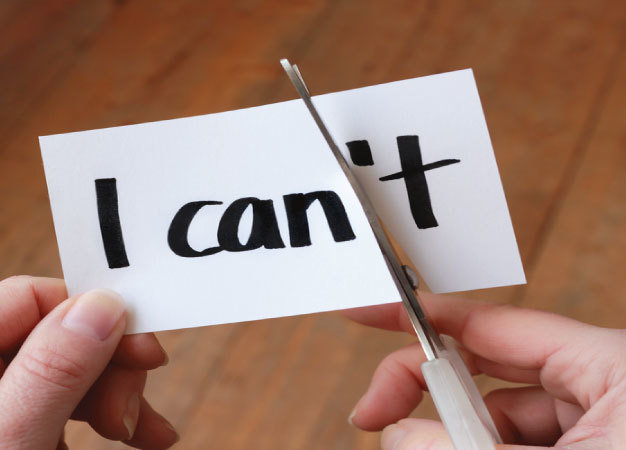
|
April 27, 2020
COVID-19
Resilience in
Uncertain Times

|
|
|
|
|

|
The COVID-19 pandemic and the current public health crisis situation is stressful for everyone and it is normal to be anxious and worried. Our stress and anxiety can cause us to focus on all of the negatives and trigger "what if" questions that may drive us to think about worst case scenarios. During times of stress, people often overestimate how bad the situation can get, but underestimate how well they are able to cope.
While the pandemic is impacting our daily routines it‘s comforting to witness the many moments of strength and hope that showcase the resilience, or grit, that people demonstrate in times like these.
|
|
|
| People are Resilient and Use Coping Skills Every Day
|
|
|
Think of difficult or challenging situations you and your family have encountered that you were able to manage. Even if things weren't perfect, what did you do to cope with the situation?
Remind your youth and yourself that you can all handle stress and that if any of you need support, you can reach out to family, friends, or professionals. | Remember our collective resources - excellent health care and resilient communities. Try to replace catastrophic thoughts with something like, "This is definitely a difficult time, but we will get through it together."
Don't underestimate what you and your family are able to do when faced with challenges.
|
|
|
|
|

| Responsive Care Giving Spend quality time with your kids. Even short periods of time together engaged in fun activities can bolster their sense of safety and security.
Stay connected with others through online video chats, telephone calls, emails, or texts. These connections help adolescents feel connected and supported.
|
|
|
Meeting Basic Needs Know that asking for help is a sign of strength and resourcefulness, not weakness. Identify any services that are needed for food, shelter, clothing, and mental health supports.
Prioritize parent and caregiver mental and physical health.
Spend time and energy on enjoyable activities with family.
Take breaks from work and care giving responsibilities. | Reassure youth about their safety and the safety of loved ones.
Maintain predictable routines for sleeping, eating, learning, and fun. Many youth are varying sleep patterns with the lack of structure - it is important the schedules overlap so families avoid isolation and continue to connect.
Support regulation skills in managing difficult feelings through deep breathing, movement, quiet time and check ins.
Emphasize positive stories of hope, resilience and people helping each other.
|
|
|
Social Connections Encourage teens to stay socially connected virtually. Spend virtual time regularly with extended family members and friends.
Focus on connections that offer helpful support.
Connect to others through common hobbies and opportunities to help in the community, which can be rewarding and meaningful.
Conduct regular check ins with families.
|
 |
|
|
|
|

| The seven C’s model of resilience was first published by the American Academy of Pediatrics in 2006 and has since been updated. It draws from a framework presented by some of the great leaders of the positive youth development movement and adds to their model by emphasizing “coping”. Coping prepares us to recover, and “control” which gives us the sense that our choices make a real difference.
|
|
|
Each “C” is a critical element that parents, schools and communities can support in youth. The C’s are all interrelated — forming almost a net of resilience-building strategies.
|
|
|
|
1. Confidence
Young people with confidence will have the belief in themselves that they will ultimately succeed. They’ll be more likely to take the chances needed to learn about themselves. Confidence is not gained from an abundance of unearned praise. Rather, it comes from adults authentically noticing effort and nurturing and supporting skills (or competence). | 2. Competence Youth need to possess the following skills: communication, self-advocacy, peer negotiation, and academic tenacity. Young people also need to be able to make wise decisions if they are going to make the kind of choices that will contribute to, versus undermine, their health and well-being.
|
| |
|
|
|
|
3. Connection Human connection allows us to more fully celebrate during joyous times and to recover during challenging times. It is the connection with your youth — based on knowing who they really are — that is the most protective force in their lives.
| 4. Character
Adults must notice and nurture teens' inherent character strengths and teach and reinforce others. We also must never forget that our actions speak so loudly that sometimes our kids can’t hear a word that we are saying. In other words, they are watching what we do. We must uphold those character traits that we hope to see in them.
|
| |
|
|
|
5. Contribution
Young people want to matter. Ultimately, they want to have a sense of meaning and purpose in their lives. When children and adolescents are given an opportunity to make a difference they also gain strong protections for themselves. When they contribute to other lives they gain appreciation. Youth surrounded by gratitude rather than condemnation thrive. Plus, they earn an extra set of protective eyes to watch over them. | 6. Coping Life is about making choices. Stress is a part of life — an uncomfortable reality. We do what we can to minimize discomfort. The choices we make to cope with our discomfort can be negative or positive. Negative ones can work in the short run, but bring great harm to us and our communities in the long run. When we raise youth with a range of healthy coping strategies (and model them as well), they make wiser, healthier choices during challenging times.
|
|
|
 | 7. Control
Core to resilience is knowing that your actions matter. Without a sense of control we cannot possess hope. And without hope, we crumble in challenging times. How we parent makes a large difference in our children’s sense of control. Young people who know that their parents are pro-development — supporting all stages of their growth — understand privileges are earned with demonstrated responsibility.
|
|
|

|
Finding Happiness in
Challenging Times
Happiness means something different to each person, and while we all have tough moments when we feel down, the experts say there are some very simple ways of finding happiness every day that can help lift your spirits.
|
|
|
|
Feeling grateful for what you have in your present life. Savouring the moment when something positive happens. Have an awareness of what you enjoy in life. Try listing five things you are thankful for right at this very moment.
Know your strengths. Are you creative? Kind? Brave? Do you have a good sense of humour? Look into your strengths and find ways to use them.
The power of positive thinking and the importance of balance. It's important to allow yourself to experience both positive and negative emotions, especially at difficult times. If you're faced with a challenging situation, a balanced thought might be, "This is going to be really hard, and with the right support, I can find a way to make it work."
|
| |
|
|
|
|
Click the button below for a comprehensive list of Community Services and their availability during the pandemic.

|
| |
|
Safer Schools Together is offering a Free
Remote Session for Parents: Raising Responsible Digital Learners
April 29 - 9:00-10:30 am This FREE parent presentation will focus on increasing your understanding and awareness of safety in the remote learning world. Being social is such an important part of your child‘s growth and that has become much more difficult with ’shelter in place‘ orders in affect. At this age, they will encounter situations that will challenge their independence, including cyberbullying (and more commonly – cyberexclusion), the dangers of anonymity, privacy, sharing intimate images, and inappropriate websites, and you need to be there to provide support and guidance during this critical period. Finally, to better equip you for your digital parenting strategy, a snapshot of the current video conferencing platforms, trends and concerning apps will be provided.

|
|
|

|
Chief Joseph sends a message to all in light of COVID-19.
"If ever there was a time and a need to honour our common humanity, "Namawyut (we are all one), this is it. This is the moment."
|
|
|
|
|
|
|
| Learning Resources for Students with Complex Needs
|
|
|
|
|
|
Food Resources for Families
|
|
|
|
|
|
|